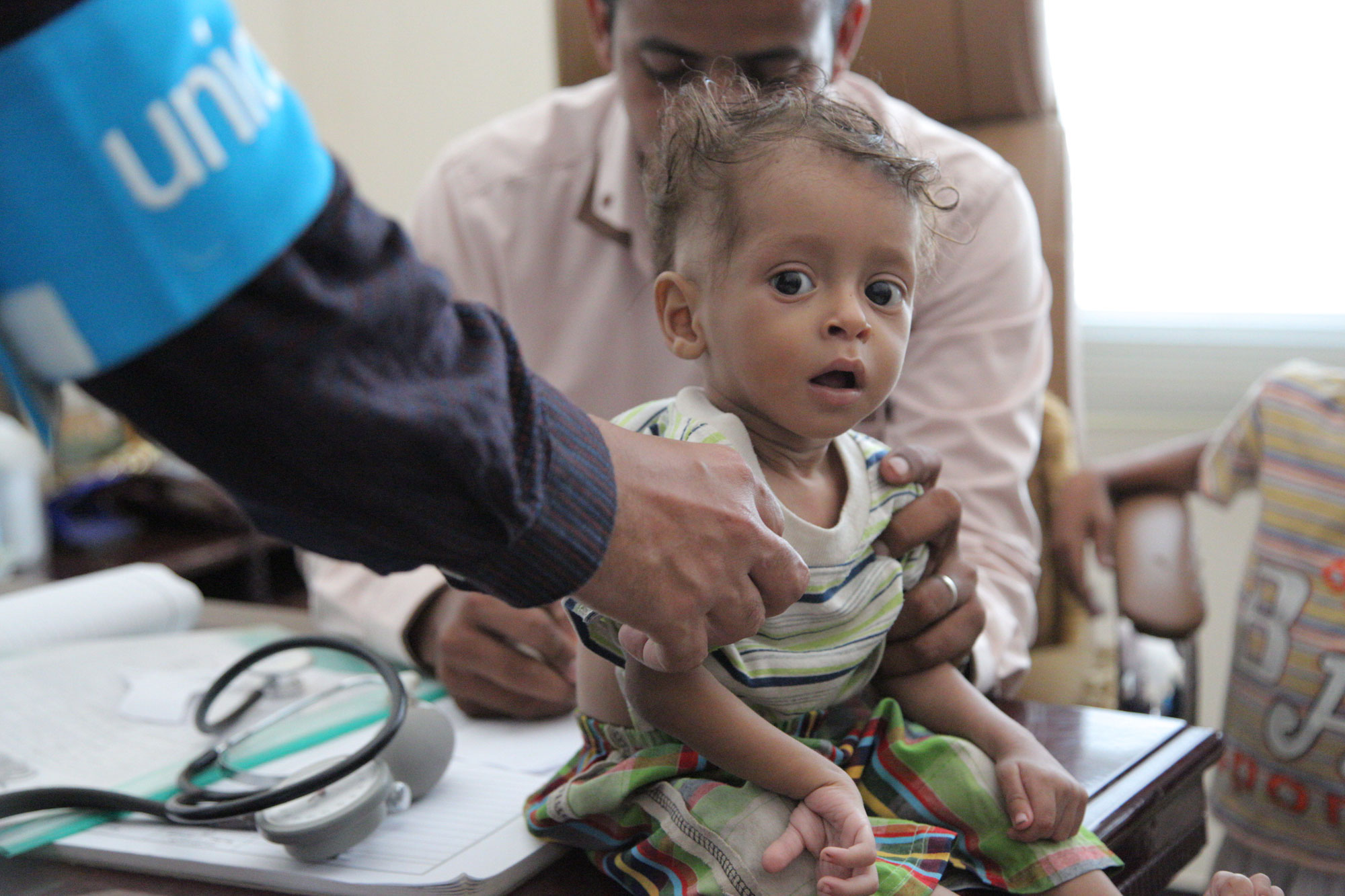
(Photo: UNICEF/UK)
(May 2, 2019) — The international humanitarian relief NGO Doctors Without Borders/Medecins Sans Frontieres (MSF) released a report on the alarming number of Yemeni mothers and children dying from a lack of proper healthcare. They focused on two facilities where they provide free health services. The Saudi led coalition has targeted civilian infrastructure in their bombing campaign, according to the Yemen Data Project 33 airstrikes have directly hit hospitals from April of 2015 through January 2019.
The public health infrastructure has collapsed in Yemen since the war started in 2015, but MSF has increased its presence. MSF runs 20 health facilities, supports many more and employs 2,200 people in the country. One facility they focus on in the report is the Taiz Houban Mother and Child hospital in the Taiz governate, which was converted into a hospital from a hotel in 2015.
The Taiz Houban hospital alone has seen 860 deaths between 2016 and 2018. 17 mothers, 242 children and 601 newborns. 227 of these deaths were children or newborns who were dead on arrival. The other facility in the report, the Abs hospital in the Hajjah governorate, supported by MSF since 2015, recorded the deaths of 705 people. 19 mothers, 269 children and 417 newborns.
The journey to a hospital for these Yemeni mothers and children is a treacherous one, and the extra time it takes them to travel due to the dangerous roads can cost them their lives, “The long distances, the explosions and the clashes make the patients come late. We ask them ‘Why are you late? Why did you not come early?’
They answer that they traveled from 6 am and arrived at midnight. The clashes and the blocked roads made them late. Therefore we receive terrible cases: premature birth, bleeding, dead fetus. Mothers lose their lives. When we ask their families why they came late, they tell us it is because of the security situation and their economic conditions.” One account from Zainab an MSF nurse in Taiz Houban.
This report is just one example of the horrors the Yemeni people have had to live under since the Saudi-UAE coalition declared war on the country with the blessing of Obama. A UN report found that the death toll will reach 233,000 by the end of 2019 if the fighting continues, 102,000 combat deaths and 131,000 indirect deaths due to lack of food, health services and infrastructure.
The Senate just failed to override Trumps veto on the bill to end our involvement in the war in Yemen. Donald Trump appeared on Fox News this week claiming he wants to help the people of Venezuela, because they are dying and don’t have any food or medicine while he perpetuates this horrible war.
Dave DeCamp is a freelance journalist based in Brooklyn NY, focusing on US Foreign policy and wars. He is on Twitter at @decampdave.

Yemen’s hospitals struggle with record numbers of starving children.
Assessing the Impact of War on Development in Yemen
United Nations Development Programme
This study on the “Impact of War on Development in Yemen”, was commissioned end of 2018 in collaboration with Frederick S. Pardee Center for International Futures, Josef Korbel School of International Studies, University of Denver. The researchers undertook the analytical work with a desire to understand the impact of war in Yemen across human, social and economic dimensions of development.
The analysis was undertaken by calibrating a quantitative modeling system called International Futures (IFs) to fit the available information on the impact of war in Yemen to date, and then create four hypothetical analytical scenarios to be explored. One where the conflict ends in 2019, 2022 and finally one where conflict extents all the way to 2030.
To assess the impacts from the conflict across the three conflict scenarios the fourth scenario represents a counter-factual world in which conflict did not escalate beyond 2014. The result is an impact study that quantifies the damages of the war in Yemen across multiple dimension of development such as loss of lives, health, demographics, education, infrastructure and the economy, etc.
The study is intended to advocate to the parties to the conflict on the consequences of the conflict on medium- and long-term development, as recovery to the pre-conflict levels would require two to three generations.
At the same time, the study intends to inform the general public, including the international community, about the level of devastation caused by the conflict in Yemen, and ask those who have influence over either party to the conflict to urgently push towards a sustainable peace deal and a stop to further escalation.
The situation is already extremely severe. If it deteriorates further it will add significantly to prolonged human suffering, retard human development in Yemen, and could further deteriorate regional stability.
Posted in accordance with Title 17, Section 107, US Code, for noncommercial, educational purposes.